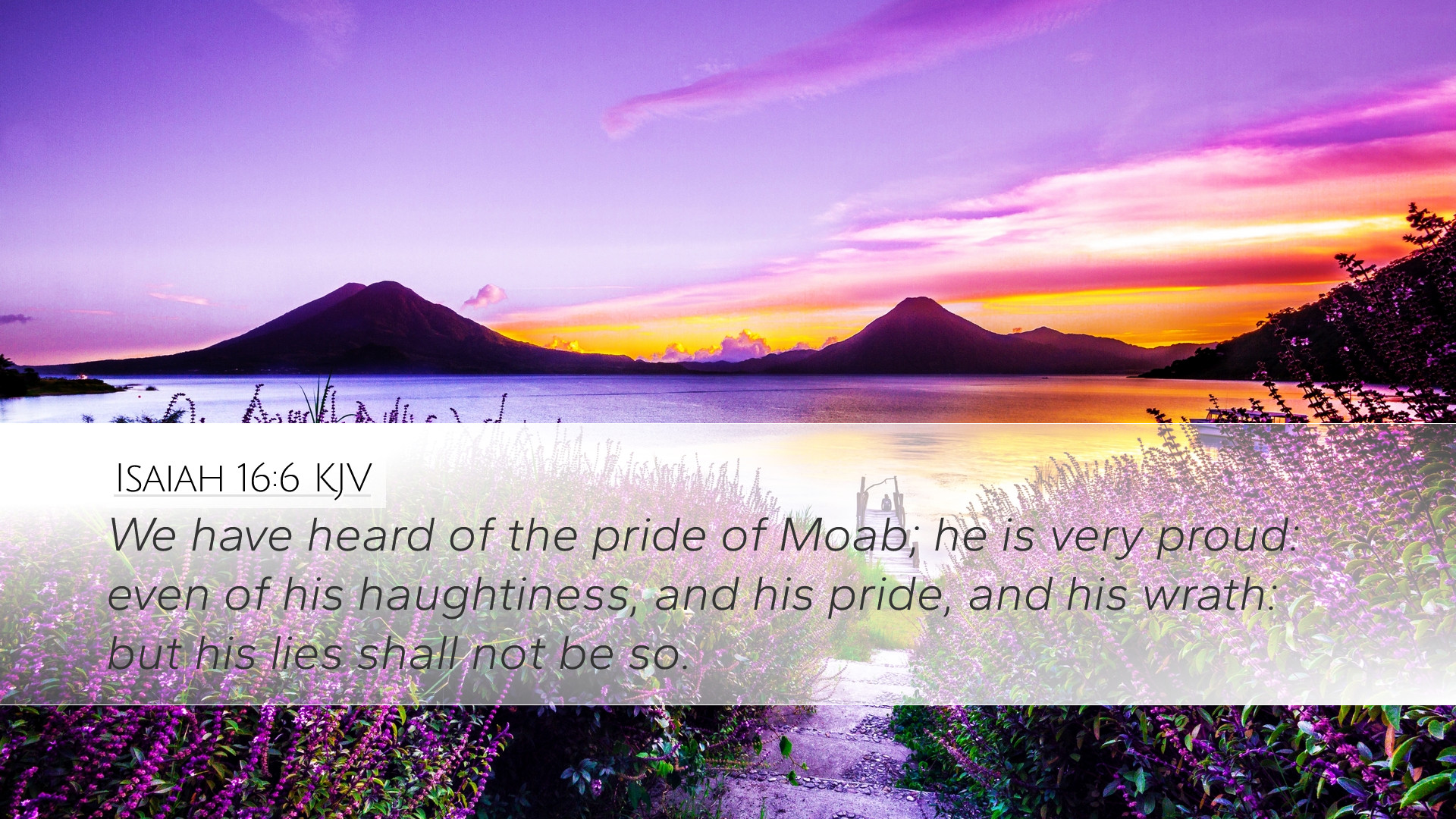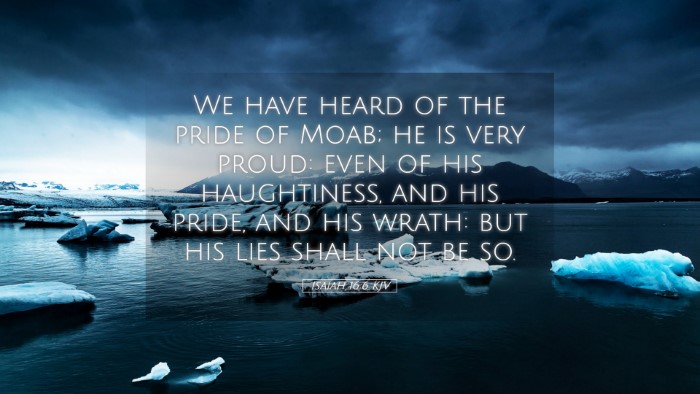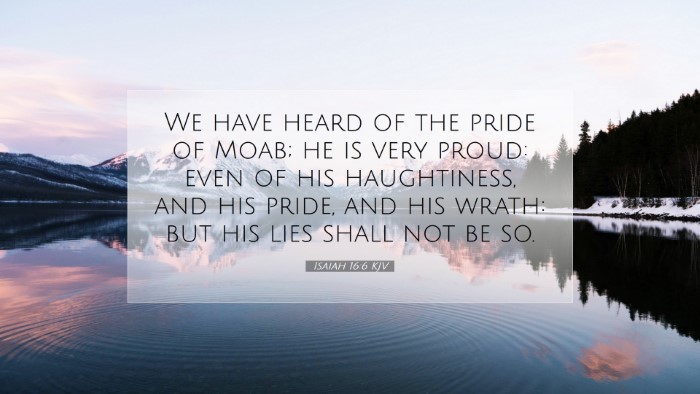Commentary on Isaiah 16:6
Isaiah 16:6 states, "We have heard of the pride of Moab; he is very proud: even of his haughtiness, and his pride, and his wrath; but his lies shall not be so." This verse offers a profound insight into the character of Moab, showcasing its prideful disposition and the divine judgment that accompanies such arrogance.
Contextual Background
To fully grasp this verse, one must consider the historical context of Moab, a nation located to the east of Israel. Moab was often in conflict with the Israelites and exhibited a sense of superiority that led to its eventual downfall. This commentary aims to draw insights from notable public domain scholars to reveal the theological implications of pride and divine retribution.
Insights from Matthew Henry
Matthew Henry emphasizes that the pride of Moab is not merely a social or national characteristic but a spiritual failing. He highlights three key aspects of Moab's pride:
- Pride's Manifestation: Moab's arrogance is evident in its behavior, as it disregards the sovereignty of God and the potential consequences of its pride.
- The Resulting Judgment: Henry asserts that such pride leads to inevitable judgment. Moab’s self-reliance and haughtiness will not stand before God's righteousness.
- The Futility of Lies: The lies and deceitfulness that arise from pride will ultimately fail, as God's truth prevails over the falsehoods of men.
Insights from Albert Barnes
Albert Barnes presents a detailed analysis of the text, emphasizing the historical context in which Isaiah proclaims these words. He notes:
- Historical Context: Moab’s hostility towards Israel was fueled by its inflated sense of self-worth, which can lead to conflict both with God and fellow nations.
- Divine Perspective: Barnes explains that the pride of Moab described in this verse reflects not only the nation’s mindsets but also serves as a warning against the universal nature of pride found in all humanity.
- Theological Implication: He draws attention to the biblical principle that “pride goes before a fall” (Proverbs 16:18), illustrating that God's judgment is an inevitable response to arrogance.
Insights from Adam Clarke
Adam Clarke offers a contextual interpretation, noting the unique characteristics of Moab’s pride, which includes:
- Social Implications: Clarke highlights pride as a catalyst for societal disintegration. When nations prioritize pride, they sow discord and invite destruction.
- Recognition of God’s Sovereignty: He notes that Moab’s pride blinds it to the reality of God’s sovereignty. The contrast between man's pride and God's supreme authority is a central theme.
- Call to Humility: Clarke urges readers to consider humility as a godly virtue, contrasting it with Moab's downfall. This teaches valuable lessons about reliance on God rather than one’s own strength.
Theological Reflections
In light of these commentaries, several key theological themes emerge from Isaiah 16:6:
- The Nature of Pride: Pride is portrayed as both a personal and communal sin that distorts one’s relationship with God and others.
- Consequences of Disobedience: The scripture warns that defiance against God's will often results in severe repercussions, encouraging self-examination among believers.
- The Assurance of God’s Justice: God's commitment to justice is evident. Just as Moab's pride brought about its judgment, so too can any heart that harbors pride remain unrepentant.
Application for Believers
The message of Isaiah 16:6 resonates profoundly today. For pastors, students, theologians, and scholars, this verse serves as a cornerstone for a much-needed reflection on personal and communal pride. Consider the following applications:
- Self-Examination: Believers are encouraged to assess areas of pride in their lives and in their communities, fostering an atmosphere of humility.
- Preaching Against Pride: Pastoral teachings should incorporate a balanced view of humility and the dangers of arrogance, guiding congregations in godly living.
- Cultivation of Humility: Emulating the humility of Christ (Philippians 2:5-11) can help counteract pride in both personal and communal spheres.
Conclusion
Isaiah 16:6 presents a timeless warning against pride, grounded in the historical and spiritual realities of Moab's arrogance. Drawing from the insights of esteemed commentators, we are reminded of the dangers of pride and the certainty of God's justice. As we delve deeper into these truths, may we strive towards humility and recognize the sovereignty of God in all aspects of our lives.


